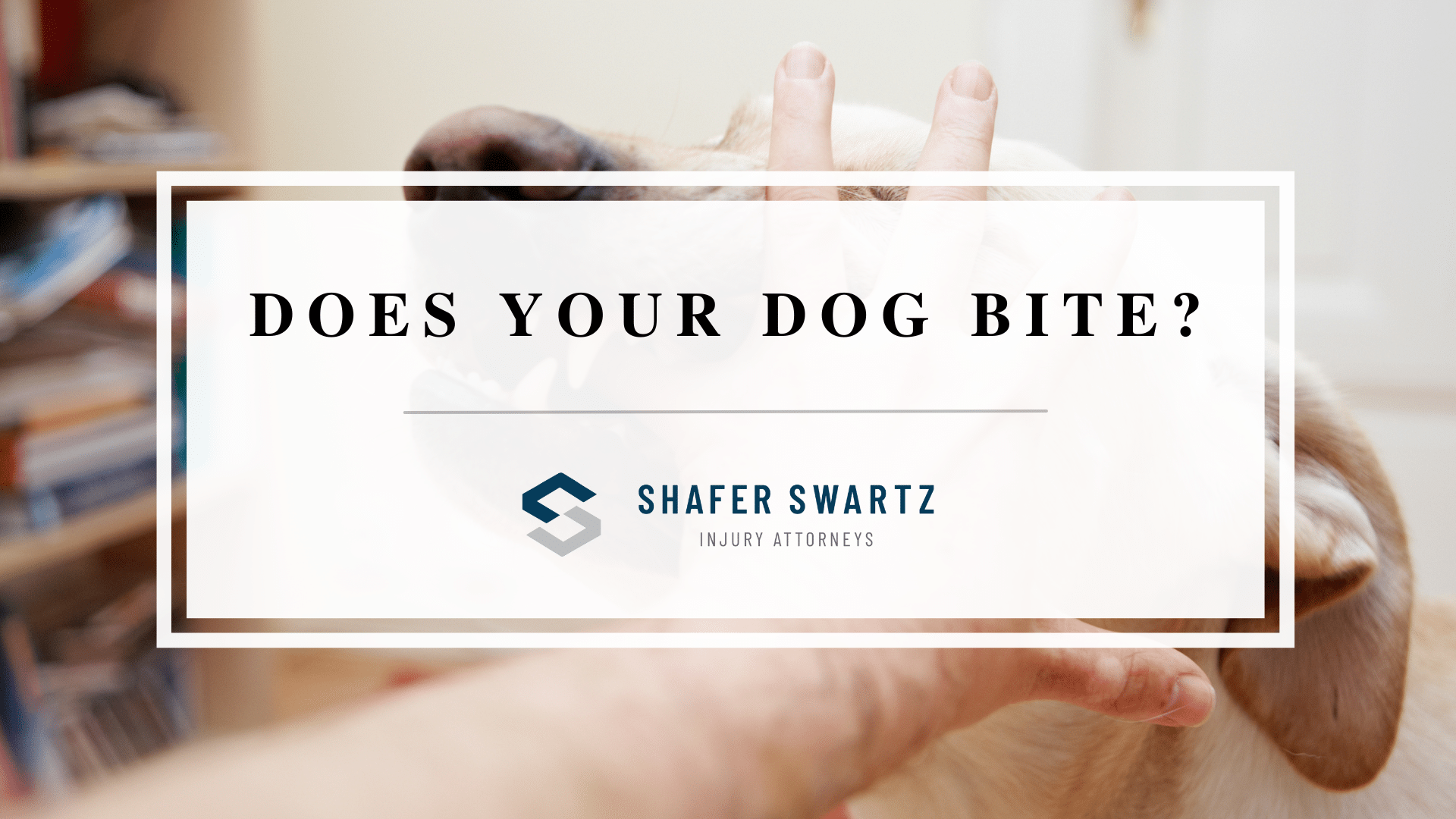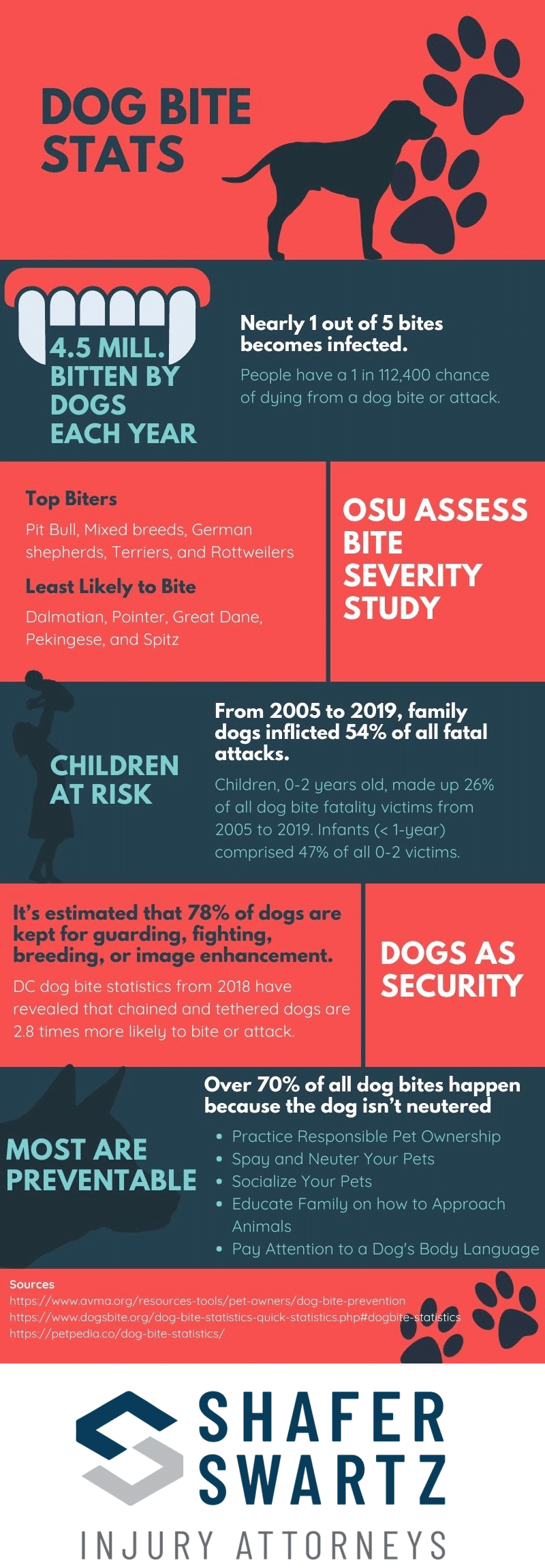Every year, a staggering 4.5 million people in the United States experience the unfortunate incident of a dog bite. Surprisingly, these bites often come from the dogs that dwell in our homes, with many of these alarming incidents occurring in the presence of family members. Between 2005 and 2019, it was observed that 54% of fatal dog attacks were inflicted by family pets. In the same period, infants and toddlers aged 0-2 represented 26% of the victims of these tragic fatalities. So, why do our dogs, often dubbed “man’s best friend,” resort to biting, especially those that are well-cared for?
Typically, dogs may bite as a defensive reaction when they feel their food, toys, or territory is threatened or when they’re in a state of fear or distress. Illness can also alter a dog’s behavior, making them more prone to snapping or biting. If you are a dog owner asking, “Why does my dog bite me?” it’s crucial to understand the multifaceted nature of this behavior. For instance, dogs that are tethered or chained are reported to be 2.8 times more likely to bite, as confinement can lead to frustration and aggression. On the other hand, some dogs may develop biting habits during their puppyhood, which, if not corrected early, can manifest into more severe behavioral issues. Allow our Muskegon personal injury attorney to shed light on why dogs bite and offer guidance on addressing such incidents.
Dog Breeds and Bite Behavior
Unfortunately, not every dog is brought into a home purely for companionship. Around 78% of dogs are kept for guarding, fighting, or breeding purposes. Doing so often correlates with an increased risk of aggressive behavior, including biting.
A study conducted by the Ohio State University College of Medicine and Wexner Medical Center in 2019 looked into the biting tendencies of different dog breeds. It was found that pit bulls and mixed-breed dogs are more likely to bite compared to others, with pit bulls specifically causing the most severe injuries.
While pit bulls are notorious for their biting incidents, other breeds also have a record of frequent biting. German Shepherds, Rottweilers, and Terriers are among the breeds that are more prone to biting. Conversely, certain breeds like Dalmatians, Pointers, Great Danes, Pekingese, and Spitz are noted for being less likely to bite.
Interestingly, despite the formidable bite of a pit bull, it’s not the strongest when measured in PSI (pounds per square inch), a unit that gauges the force of a dog’s bite. The title for the strongest bite force belongs to some of the least common dog breeds, which include:
-
- Cane Corso – 700 PSI
- Dogue de Bordeaux – 556 PSI
- American Bulldog – 305 PSI
- Doberman – 245 PSI
- German Shepherd Dog – 238 PSI
How to Prevent Dog Bites
Preventing dog bites involves proactive training and understanding of dog behavior. Here are some strategies:
-
- Early Training. Teach puppies bite inhibition through reactions like a sharp yelp to indicate that biting is unacceptable. If that doesn’t work, a brief time-out in their crate can be effective. Reward calm behavior with treats and provide chew toys for teething.
- Responsible Ownership. Spaying or neutering your pets can reduce aggression, as over 70% of dog bites involve dogs that are not neutered. Early socialization with humans and other dogs can prevent fear-based aggression.
- Educate Family and Friends. Teach safe interaction with dogs, like not startling or running towards them and allowing a dog to sniff one’s hand before petting. Such practices establish trust and significantly lower the risk of a bite.
- Understand Dog Body Language. Recognize signs of aggression such as snarling, growling, erect ears or tail, barking, and stiff posture. However, it’s important to note that some dominant dogs may not exhibit clear warning signs before biting. So, always be vigilant.
How to Treat a Dog Bite
For minor dog bites, prompt and proper care can prevent infection and aid in healing. Here’s a straightforward guide to treating a minor bite:
-
- Gently press the wound to help stop any bleeding.
- Thoroughly wash the bite with soap and water to remove any bacteria.
- Apply an antibiotic ointment to prevent infection.
- Place a clean bandage over the wound to protect it as it heals.
However, not all dog bites are minor. If the bite is severe, you should seek immediate medical attention. Nearly 1 out of 5 dog bites can lead to infection, necessitating professional care.
In Michigan, if you are bitten by a dog or another potentially dangerous animal and there’s a concern about rabies, it’s legally required to report the incident. Adhering to this guideline ensures proper follow-up, potentially including rabies prevention measures.
Seek Legal Assistance for Dog Bite Cases
Understanding dog behaviors and the steps to prevent, manage, and address dog bite incidents is paramount. But sometimes, situations escalate beyond what we can handle alone. Whether you’re a dog owner facing liability concerns or an individual suffering from a dog bite injury, knowing who to turn to can provide peace of mind and a clear path forward.
Shafer Swartz PLC is here to help you understand your legal position, guide you through the process, and work toward a resolution that upholds your rights and interests. Our experienced Muskegon personal injury attorneys, experts in Michigan dog bite laws, can provide you with clear, effective legal counsel and representation, ensuring you receive the support you deserve. Contact us today at (231) 722-2444 or here to learn more about how we can assist you in your dog bite case.



